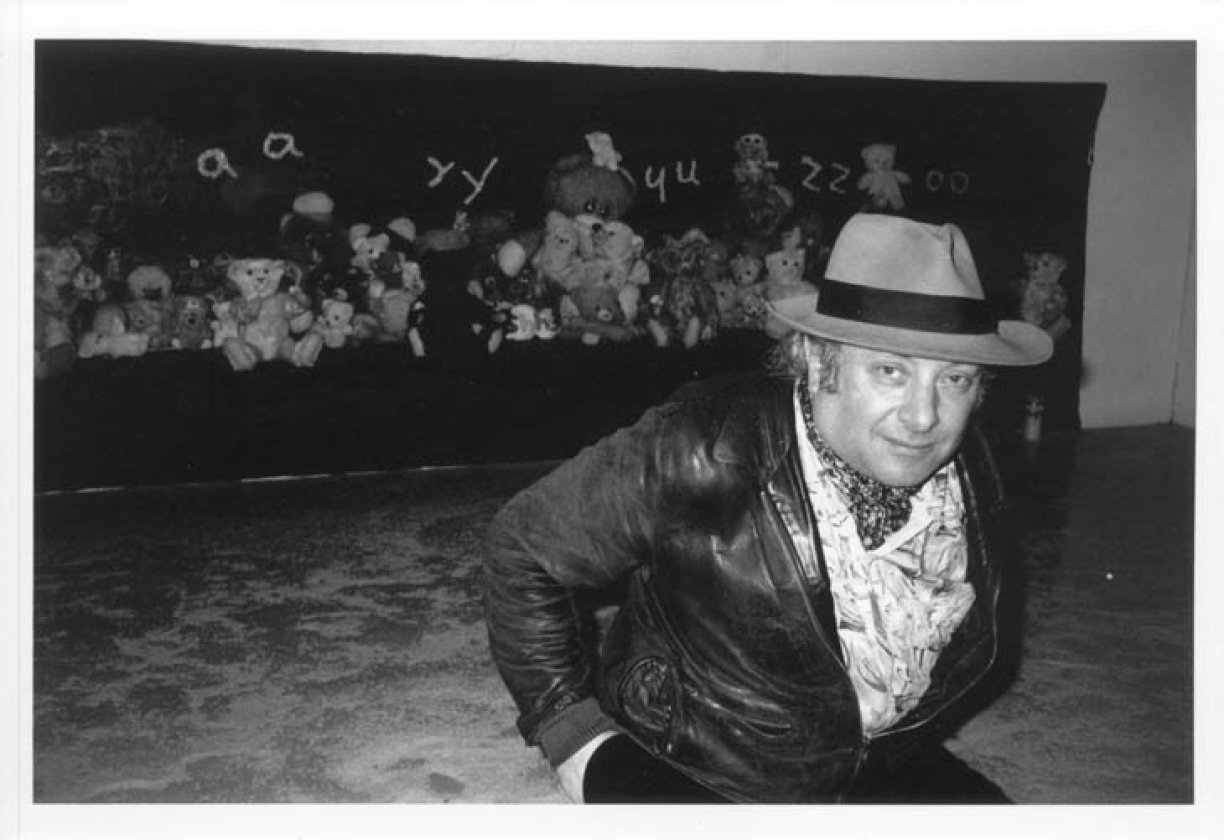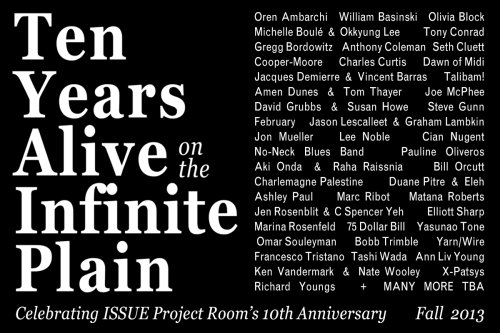A composer-performer originally trained to be a cantor, Charlemagne Palestine is best known for his intensely performed piano works, in which he uses emblematic objects including teddy bears and scarves, as what he terms “symbols of identification”. Tonight, as part of Ten Years Alive on the Infinite Plain, Palestine gives his first-ever performance in his hometown of Brooklyn on solo piano, joined by composer and improvisor Joe McPhee– a watershed player of the creative jazz scene– and the poet Steve Dalachinsky, who has long occupied a unique role in the jazz firmament.
Online sales have now ended, door tickets are available
Ten Years Alive on the Infinite Plain– a two-month festival celebrating ISSUE Project Room's 10th anniversary– revisits seminal past projects and initiates new relationships with over 60 artists working across disciplines of sound, dance, performance, and literature. Presented as a series of 24 evenings of provocative double billings, Ten Years Alive blurs the boundaries between divergent disciplines and practices and celebrating the vibrancy of the Brooklyn experimental arts community.
Charlemagne Palestine is an American composer, performer, and visual artist. Palestine has studied at New York University, Columbia University, Mannes College of Music, and the California Institute of the Arts. A contemporary of Philip Glass, Terry Riley, Phill Niblock, and Steve Reich, Palestine wrote intense, ritualistic music in the 1970s, intended by the composer to rub against Western audiences’ expectations of what is beautiful and meaningful in music. A composer-performer originally trained to be a cantor, he always performed his own works as soloist. His earliest works were compositions for carillon and electronic drones, and he is perhaps best known for his intensely performed piano works. Palestine's performance style is ritualistic: he generally surrounds himself and his piano with stuffed animals, smokes large numbers of kretek, and drinks cognac.
Since his emergence on the creative jazz and new music scene in the late ‘60s and early ‘70s, Joe McPhee has been a deeply emotional composer, improviser, and multi-instrumentalist, as well as a thoughtful conceptualist and theoretician. Born on November 3, 1939, in Miami, FL, McPhee first began playing the trumpet at age eight. McPhee continued on that instrument through high school and then in a U.S. Army band stationed in Germany; during his Army stint, he was first introduced to traditional jazz. Clifford Thornton’s Freedom and Unity, recorded in 1967 and released in 1969 on the Third World label, is the first recording on which McPhee appears. In 1968, he began playing the saxophone and since then has investigated a wide range of instruments (including pocket trumpet, clarinet, valve trombone, and piano), with active involvement in both acoustic and electronic music.
Poet Steve Dalachinsky occupies a unique place in the jazz firmament. Actually, he occupies several places: he writes poetry inspired by jazz, he performs and records with jazz musicians and he has supplied liner notes for numerous artists including multi-instrumentalist Anthony Braxton, drummer Rashied Ali and pianist Matthew Shipp. Dalachinsky is an avid supporter of the music, one of those people who needs jazz like they need air. In fact, if you go hear avant-garde music in New York City and see someone writing intently in a corner, it's probably Dalachinsky. He published almost 20 books of poetry and collage, and he won the 2007 PEN Oakland National Book Award for his book The Final Nite & Other Poems: Complete Notes from a Charles Gayle Notebook 1987-2006 (Ugly Duckling Press, 2006).







